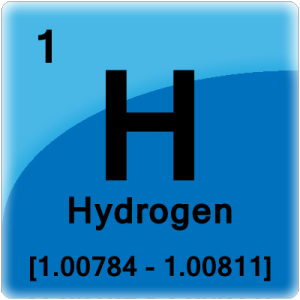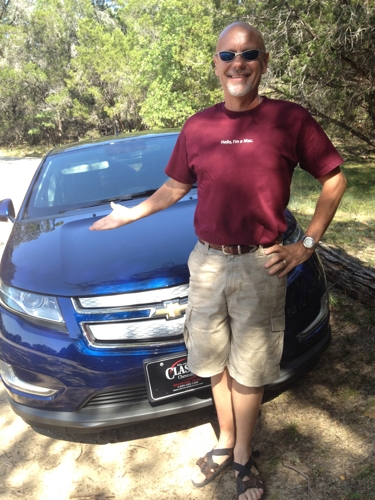 Back when I was looking for my first electric vehicle, in 2012, what I really wanted was a hydrogen fuel cell vehicle. I had read about them for years and loved the idea of a non-polluting vehicle that runs on the most common element in the universe. Unfortunately, I was several years too early and my timing was unavoidable.
Back when I was looking for my first electric vehicle, in 2012, what I really wanted was a hydrogen fuel cell vehicle. I had read about them for years and loved the idea of a non-polluting vehicle that runs on the most common element in the universe. Unfortunately, I was several years too early and my timing was unavoidable.
Since then, as my regular readers know, I have leased or purchased four Chevy Volts (and am planning a fifth in the next six months). I was fortunate in that, when I was shopping for an EV, there weren’t many to choose from. I didn’t have to pore over specifications to make a decision. It came down to the only two plug-in vehicles I could afford, the Chevy Volt or the Nissan Leaf. Due to the battery issues, in the news at the time, I selected the Volt. I lucked out, because I believe that, in the current (no pun intended) status of infrastructure, the Volt is the obvious choice. It has a great electric range and the gasoline-powered range extender allows flexibility like no other plug-in vehicle (except the Volt’s cousin, the Cadillac ELR). Only those two vehicles run exclusively on electricity until the battery pack is depleted. At that point, they automatically switch to the gasoline engine to continue running. In fact, my manager Hank opened my eyes to the fact that, “You don’t ever have to plug in a Volt. It can run like any gas-powered car, as long as you keep putting gasoline in the tank.”
specifications to make a decision. It came down to the only two plug-in vehicles I could afford, the Chevy Volt or the Nissan Leaf. Due to the battery issues, in the news at the time, I selected the Volt. I lucked out, because I believe that, in the current (no pun intended) status of infrastructure, the Volt is the obvious choice. It has a great electric range and the gasoline-powered range extender allows flexibility like no other plug-in vehicle (except the Volt’s cousin, the Cadillac ELR). Only those two vehicles run exclusively on electricity until the battery pack is depleted. At that point, they automatically switch to the gasoline engine to continue running. In fact, my manager Hank opened my eyes to the fact that, “You don’t ever have to plug in a Volt. It can run like any gas-powered car, as long as you keep putting gasoline in the tank.”
Now, several companies have announced hydrogen fuel cell vehicles, and I started looking at those as a possible alternative to a plug-in EV. I’ve come across new information (to me, at least) that makes me lean toward staying in the EV world. There are three factors that are influencing me:
- My carbon footprint
- Convenience
- I can become my own fuel vendor
The “carbon footprint” factor may have surprised people new to “Zero Emission Vehicles.” The reason I always wanted a hydrogen-powered vehicle is that the by-product of the drive system is water. Pure. Clean. Water. How could that not be a great thing?!? Well, as it turns out, it’s the way the hydrogen is made.
What? Why do we have to make the most common element in the universe? Can’t we just grab it from the atmosphere? The short answer is no. From the Wiki accessible by the link above, “Currently, the majority of hydrogen (∼95%) is produced from fossil fuels by steam reforming or partial oxidation of methane and coal gasification with only a small quantity by other routes such as biomass gasification or electrolysis of water.” This fact has completely ruined the aura of Hydrogen vehicles for me. Many people might counter with, “Most of the electricity in the U.S. is generated by burning coal.” While true, it is something over which I have control. For fifteen years now, I have only bought electricity from companies that generate electricity using 100% renewable energy sources (Green Mountain Energy & Beyond Power). In Texas, that is predominantly wind power and yes, I know the wind doesn’t always blow and these companies have to occasionally buy energy from unclean sources. However, they also purchase extra renewable energy, if available or buy extra clean energy from renewable sources on the grid, to offset the dirtier energy they had to buy. Yes, I’ve also heard the argument that EVs are dirtier than gasoline-powered vehicles. Nope. Untrue. So, I believe the Volt is the only vehicle (other than the exorbitantly priced ELR) that matches my driving needs which are:
- Drive on electricity as much as possible, and
- Let me use gasoline if I need to drive farther.
This thought is echoed in the Volt slogan, “Electric when you want it, gas when you need it.” I do not believe this will always be the case. As electric charging increases in speed and charging infrastructure is built out, the dependence on the range extender will lessen and eventually disappear. For this reason, I see the Volt as the perfect transition vehicle for where we are right now.
Although “cleanliness is next to Godliness,” I have to admit, I believe the real nail in the coffin for hydrogen fuel cell vehicles is the second factor I mentioned, convenience. My Volt and I only go to a gas station once every three months (yes, you read that right) and I pout the whole time. Why am I having to leave my home and stand in the heat/cold/rain to refuel??? This thought caught me completely off-guard. Convenience is the strong suit for plug-in vehicles! I absolutely LOVE coming home and plugging in, instead of driving to a location to refuel.
Additionally, hydrogen is not dense and must be stored in a pressurized state in order to store more energy, per cubic foot of space. The pressures involved may be as high as 5,000 PSI or 10,000 PSI. Driving around with a tank of hydrogen pressurized that much gives me pause. I know the NTSB or some such government agency, must have come up with a way to do this safely, but every time I think of this issue, the same image pops up in my head: That may not be rational, but there it is…
That may not be rational, but there it is…
Finally, since owning a Volt, I have lost track of gasoline prices. Once a month, I review gas prices for my EV sales numbers reports, but other than that, I never notice. I don’t pay “the man” for my fuel anymore, except every ninety days. I have locked in my electric rate for the next three years, so I have no fuel price volatility. I don’t have to shop around. If I put solar panels on my house, I’ve become my own fuel provider, with prices locked in for 20+ years! I’m not at the mercy of anyone.
and I never will be again.


The thing that will kill fuel cell cars is the lack of fueling stations. Could existing gas stations install hydrogen fueling facilities? Yes, but they won’t: huge expense for little to no, or at best very speculative, return. Toyota has influenced the CA legislature into using taxpayer money to build some hydrogen fueling stations. Hopefully, other states won’t be that corrupt.
Hydrogen adoption, like electric vehicles, will require government intervention. I would expect that this will continue to be along the guidelines of establishing a refueling network, via tax incentives. Even with this effort, I expect EVs to be a major hurdle for HFC vehicles to clear.